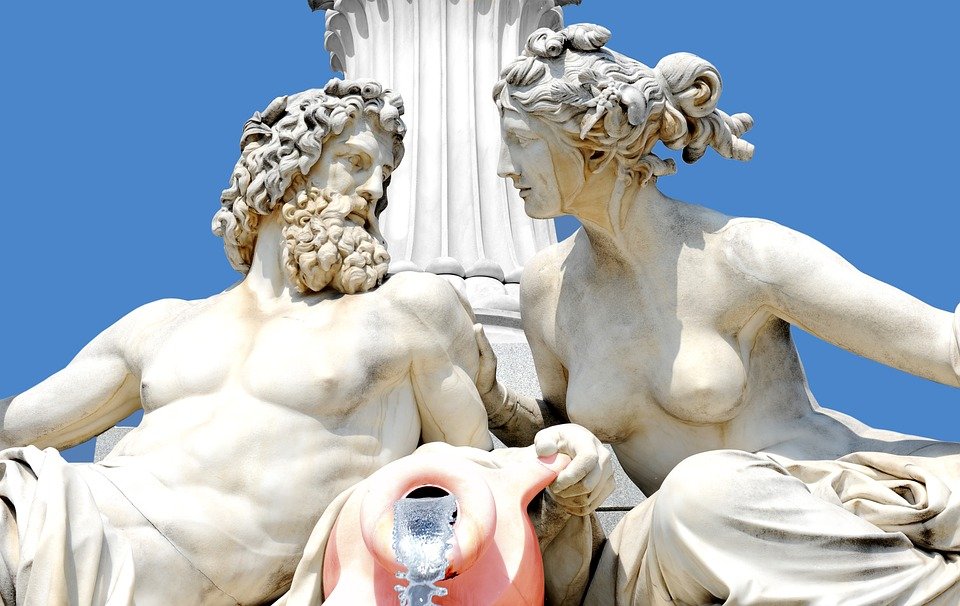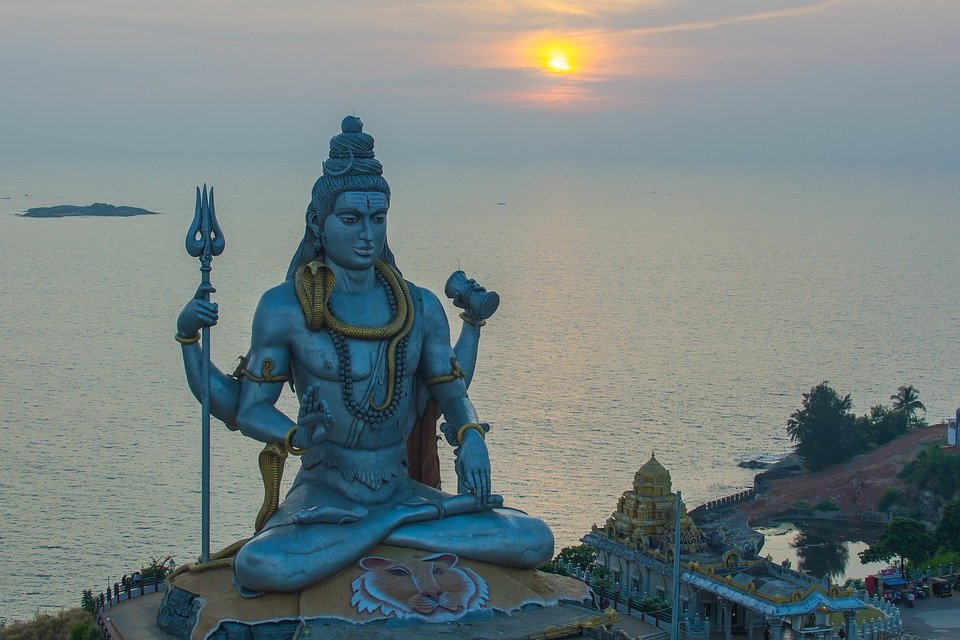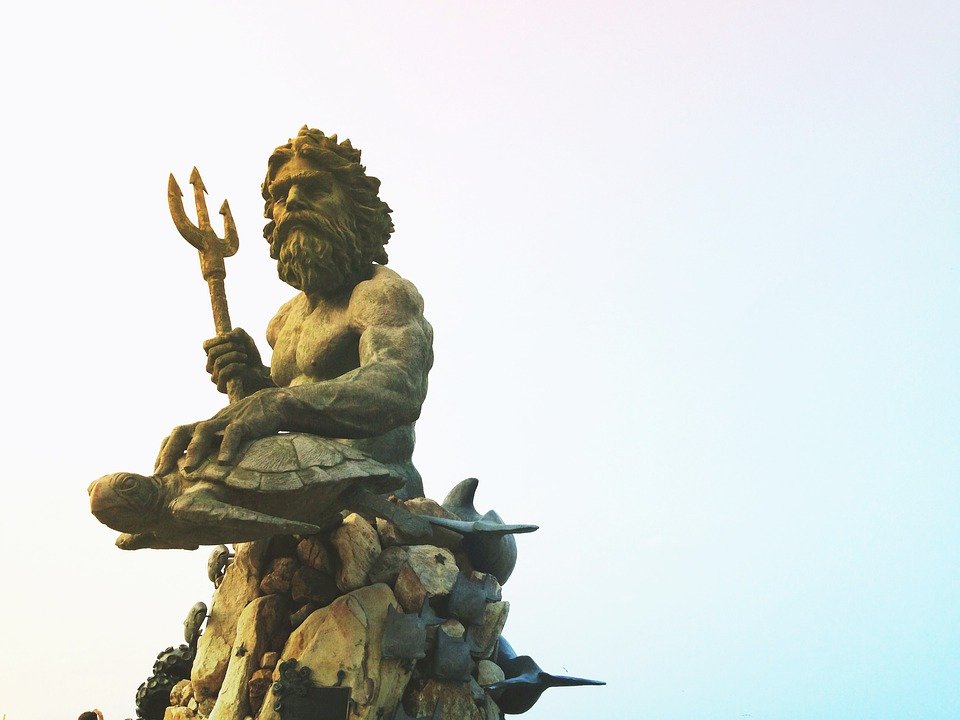India is at a distance of 5,775 kilometers from Greece. There should be no way for these two countries and cultures, so far separated, to have anything in common: but they do. They have more in common than we could have imagined.
The Trio
Three is a number that appears recurringly in several religions and cultures—and the same goes for Greek and Hindu mythologies. Greek mythology, as people already know, has three main gods: Zeus, Poseidon, and Hades. Well, guess what? So does Hinduism. Their three main gods are Vishnu, Brahma, and Shiva.
To add more to this, Indra, the “King of Gods,” can be seen as a parallel to Cronos—the father Zeus had to defeat and imprison. Indra is also depicted as vengeful, in a manner very similar to Cronos.
The King of Gods Likes Women

The tales of Zeus seducing women and taking them as “wives”—most of the time through dubious means—are too well-known to be repeated here. In Hinduism, the King of Gods—Indra—has similar womanly conquests of his own. In Hindu mythology, Ahalya was the wife of a sage named Gautama Maharishi—and was seduced by Indra. When her husband found out, he cursed her for all eternity. Sound similar to someone else’s situation? It isn’t exactly Medusa all over again, but the similarities are striking. Ahalya, like Medusa, was a beautiful woman—and cursed for it later, their beauties snatched away as punishment for sins they did not commit.
Like Medusa, Ahalya’s punishment came from the angry spouse of her seducer. And like Medusa, Ahalya was turned to stone as punishment. We guess both cultures were equally misogynistic at one point.
Weaponry
No weapon in Greek mythology is as famous as Poseidon’s trident. The forked metal weapon has appeared so many times in popular culture it’s almost impossible not to know. Well, it turns out the trident is also a major weapon wielded by Hindu gods—Shiva, specifically, is probably partial to the trident.
Moreover, Indra, the God of Kings in Hinduism, wields a weapon called the Vajrayudha—which is equivalent to the thunderbolt. We all know who the Greek king of thunderbolts is, don’t we? It would appear Zeus has an equal after all.
God of Death?

Hades—mostly, thanks to Disney and its villainous portrayal of him—gets flak for being a villain. Sure, he’s the master of Greek hell, but that doesn’t necessarily mean he’s a bad guy. Hades has feelings too. His Hindu counterpart—Yama—is also the God of Justice. Both Yama and Hades collect souls and pass judgment.
Mountain Men
It would appear that gods of both these cultures have an affinity for mountains. The Greeks live on Mount Olympus, whereas the Hindu gods are said to reside on multiple mountains, the most famous of them being Mount Kailash—or Mount Meru, as it is called in some holy texts. Did you know that Mount Kailash is one mountain that you cannot climb? At all? It is strictly forbidden!
The Gods Love Shooting
No, they aren’t hunters, and they don’t possess modern weaponry—thunderbolts and tridents, remember? Instead, what we’re here referring to is the act of shooting arrows to make people fall in love. We know Cupid does that—but Cupid is part of Roman mythology (and yes, Cupid is a god, for all those who don’t know). However, Cupid does have a Greek counterpart: Eros. Cupid has a Hindu counterpart, too: Manmatha, or Madan, is depicted in Hindu mythology often riding a parrot. Like Cupid and Eros, he, too, carries a quiver of arrows on his back and goes about infecting people with love as he pleases. All three Gods are partial to shooting arrows into people’s hearts—which should kill them, really, but makes them fall in love instead. Many would say it’s the same thing.
Their Greatest Heroes Come from Water

If you think about it, there is no greater hero in Greek mythology than Achilles. We all know Achilles as the guy who besieged Troy, who fought and killed Hector as revenge for killing his friend Patroclus, and who eventually died. It is also well known that Achilles wasn’t a mortal—he was a demi-god, the son of Thetis: The Goddess of the sea. Thetis tries very hard to prevent Achilles from going to war, but he goes anyway—because he wants to be remembered as a hero. Once he is dead, his remains are returned to Thetis.
Achilles has an equal in Hindu mythology, and he is called Bhishma. Bhishma was the son of Ganga—the goddess with a literal river named after her—and he, too, died in the greatest battle of his time.
Epics
Finally, it goes without saying that our knowledge of these two ancient cultures, their heroes, their battles, and their gods, comes from epics written over many books. The Greeks have their Iliad, Aeneid, and Odyssey. The Hindus have their Mahabharata and Ramayana—massive books, spread over many volumes, relating tales of the great gods, their adventures and misadventures, and more. Epics from both cultures are treated as high literature.
The only difference, perhaps, would be that Greeks no longer believe religiously in their Gods—whereas Hindus, to this day, are loyal to their heritage.
What Do These Similarities Tell Us?
There are those who will say that humans have told the same stories over and over again. It’s not entirely untrue: many cultures have their own version of Romeo and Juliet, stories about heroes who defeated great monsters, and disobedient angels.
One explanation might be that humans are hardwired to tell stories—and that our collective, universal ideals are limited to the point where these storylines are bound to overlap.
The other explanation is that at some point in time, super-powerful deities like Zeus and Rama did exist. Sadly, while science does have proof to explain the existence of animals in the Jurassic Period, we haven’t yet been able to determine if Aphrodite and Yama existed.
However, the existence of two sets of stories so strikingly similar, in two such distant parts of the world, does tell us this: there’s some truth to this tale. We might not know to what extent it is true—but we can safely say that these stories are not entirely without merit.
About the Author
The author, Karl Mollison, is a spiritual healer and channeler with a special interest in religions, spirituality, and healing. You can find out more about his project and person here
